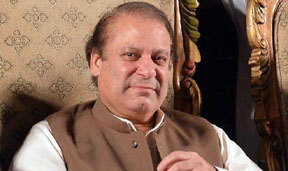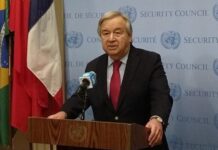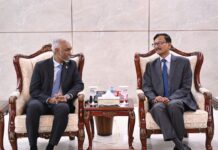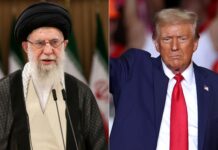 ISLAMABAD: Facing international isolation, Prime Minister Nawaz Sharif in an unprecedented move has warned the powerful military not to shield banned militant groups and directed authorities to conclude the Pathankot terror attack probe and the 2008 Mumbai attack trials, a leading Pakistani daily reported today.
ISLAMABAD: Facing international isolation, Prime Minister Nawaz Sharif in an unprecedented move has warned the powerful military not to shield banned militant groups and directed authorities to conclude the Pathankot terror attack probe and the 2008 Mumbai attack trials, a leading Pakistani daily reported today.
Sharif’s orders came after a series of meetings between military and civilian leaders, Dawn newspaper said.
The government delivered a “blunt, orchestrated and unprecedented warning” to the military leadership and sought consensus on several key actions, including action against banned militant groups, the paper quoted unnamed individuals, who were involved in the meetings.
At least two sets of actions have been agreed as a result of the most recent meeting, an undisclosed one on the day of the All Parties’ Conference, which took place on Monday.
ISI Director General Rizwan Akhtar, accompanied by National Security Adviser Nasser Janjua, will travel to all provinces with a message that military-led intelligence agencies should not interfere if law enforcement agencies act against militant groups that are banned.
Sharif directed that fresh attempts be made to conclude the Pathankot investigation and restart the stalled Mumbai attacks-related trials in a Rawalpindi anti-terrorism court.
Those decisions, taken after an extraordinary verbal confrontation between Punjab Chief Minister Shahbaz Sharif and the ISI DG, appear to indicate a high-stakes new approach by the PML-N government, the paper said.
Separately, on Monday Foreign Secretary Aizaz Chaudhry made an exclusive presentation in the Prime Minister’s Office to a small group of civil and military officials.
The presentation by the Foreign Secretary summarized the results of the recent diplomatic outreach by Pakistan, the crux being that Pakistan faces diplomatic isolation and that the government’s talking points have been met with indifference in major world capitals, the paper said.
On the US, Chaudhry said that relations have deteriorated and will likely further deteriorate because of the American demand that action be taken against the Haqqani network.
On India, Chaudhry said that the completion of the Pathankot investigation and some visible action against Jaish-i-Mohammad, which India says was behind the January 2 attack, were the principal demands.
Chaudhry said while China has reiterated its support for Pakistan, it too has indicated a preference for a change in course by Pakistan.
Specifically, while Chinese authorities have conveyed their willingness to keep putting on technical hold a UN ban on Jaish-i-Mohammad leader Masood Azhar, they have questioned the logic of doing so repeatedly, the report said.
The Foreign Secretary’s unexpectedly blunt conclusions triggered an astonishing and potentially ground-shifting exchange between the ISI DG and several civilian officials, it said.
In response to Foreign Secretary Chaudhry’s conclusions, General Akhtar asked what steps could be taken to prevent the drift towards isolation.
Chaudhry’s reply was direct and emphatic: “the principal international demands are for action against Masood Azhar and the Jaish-i-Mohmmad; Hafiz Saeed and the Lashkar-e-Taiba; and the Haqqani network,” the paper said.
To that, Akhtar offered that the government should arrest whomever it deems necessary, though it is unclear whether he was referring to particular individuals or members of banned groups generally.
Prime Minister Sharif told Akhtar that policies pursued in the past were state policies and as such they were the collective responsibility of the state and that the ISI DG was not being accused of complicity in present-day events.
Earlier in the meeting, Akhtar stated that not only is it the military’s policy to not distinguish between militant groups, but that the military is committed to that policy prevailing.
The ISI chief did mention concerns about the timing of action against several groups, citing the need to not be seen as buckling to Indian pressure or abandoning the Kashmiri people, the report said.
According to several government officials, Monday’s confrontation was part of a high-stakes gamble by Prime Minister Sharif to try and forestall further diplomatic pressure on Pakistan.
Government officials, however, are divided about whether Prime Minister Sharif’s gamble will pay off.–PTI






